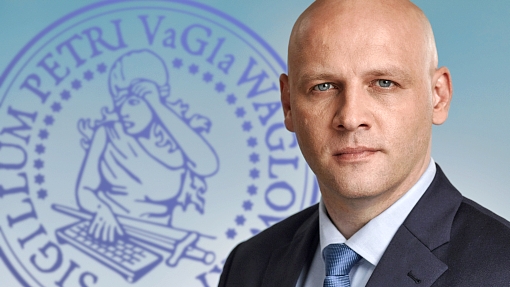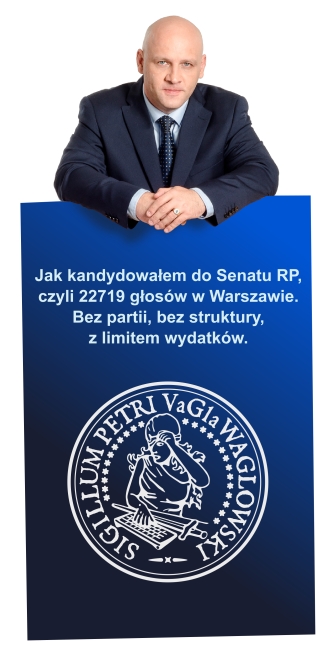Rezolucja Rady Praw Człowieka w sprawie promocji i ochrony praw człowieka w internecie
Rada Praw Człowieka (organ pomocniczy Zgromadzenia Ogólnego ONZ) w czasie ostatniej sesji (18 czerwca - 6 lipca) przyjęła szereg rezolucji, w tym rezolucję A/HRC/20/L.13 dotyczącą promocji i ochrony praw człowieka w internecie. Zdaniem Rady - co zostało potwierdzone w przyjętym dokumencie - te same prawa człowieka, które ludziom przysługują "offline", przysługują im również "online".
Sprawozdanie z 20. sesji Rady dostępne jest na stronach ONZ: Human Rights Council concludes twentieth regular session. Teksty przyjętych rezolucji zostaną opublikowane w stosownym dziale w serwisie Rady: Rezolucje przyjęte w czasie 20. sesji Rady Praw Człowieka. Dziś jeszcze dokumenty z sesji nie są tam opublikowane.
Dostępny jest za to Raport przedstawiany w czasie obrad: Report of the Special Rapporteur on the promotion and protection of the right to freedom of opinion and expression, Frank La Rue (PDF), a także dokument A/HRC/20/L.13 (PDF).
W tym ostatnim czytamy:
The Human Rights Council,
Guided by the Charter of the United Nations,Reaffirming the human rights and fundamental freedoms enshrined in the Universal Declaration of Human Rights and relevant international human rights treaties, including the International Covenant on Civil and Political Rights and the International Covenant on Economic, Social and Cultural Rights,
Recalling all relevant resolutions of the Commission on Human Rights and the Human Rights Council on the right to freedom of opinion and expression, in particular Council resolution 12/16 of 2 October 2009, and also recalling General Assembly resolution 66/184 of 22 December 2011,
Noting that the exercise of human rights, in particular the right to freedom of expression, on the Internet is an issue of increasing interest and importance as the rapid pace of technological development enables individuals all over the world to use new information and communications technologies,
Taking note of the reports of the Special Rapporteur on the promotion and protection of the right to freedom of opinion and expression, submitted to the Human Rights Council at its seventeenth session,1 and to the General Assembly at its sixty-sixth session,2 on freedom of expression on the Internet,
1. Affirms that the same rights that people have offline must also be protected online, in particular freedom of expression, which is applicable regardless of frontiers and through any media of one’s choice, in accordance with articles 19 of the Universal Declaration of Human Rights and the International Covenant on Civil and Political Rights;
2. Recognizes the global and open nature of the Internet as a driving force in accelerating progress towards development in its various forms;
3. Calls upon all States to promote and facilitate access to the Internet and international cooperation aimed at the development of media and information and communications facilities in all countries;
4. Encourages special procedures to take these issues into account within their existing mandates, as applicable;
5. Decides to continue its consideration of the promotion, protection and enjoyment of human rights, including the right to freedom of expression, on the Internet and in other technologies, as well as of how the Internet can be an important tool for development and for exercising human rights, in accordance with its programme of work.
- Login to post comments
Piotr VaGla Waglowski

Piotr VaGla Waglowski - prawnik, publicysta i webmaster, autor serwisu VaGla.pl Prawo i Internet. Ukończył Aplikację Legislacyjną prowadzoną przez Rządowe Centrum Legislacji. Radca ministra w Departamencie Oceny Ryzyka Regulacyjnego a następnie w Departamencie Doskonalenia Regulacji Gospodarczych Ministerstwa Rozwoju. Felietonista miesięcznika "IT w Administracji" (wcześniej również felietonista miesięcznika "Gazeta Bankowa" i tygodnika "Wprost"). Uczestniczył w pracach Obywatelskiego Forum Legislacji, działającego przy Fundacji im. Stefana Batorego w ramach programu Odpowiedzialne Państwo. W 1995 założył pierwszą w internecie listę dyskusyjną na temat prawa w języku polskim, Członek Założyciel Internet Society Poland, pełnił funkcję Członka Zarządu ISOC Polska i Członka Rady Polskiej Izby Informatyki i Telekomunikacji. Był również członkiem Rady ds Cyfryzacji przy Ministrze Cyfryzacji i członkiem Rady Informatyzacji przy MSWiA, członkiem Zespołu ds. otwartych danych i zasobów przy Komitecie Rady Ministrów do spraw Cyfryzacji oraz Doradcą społecznym Prezesa Urzędu Komunikacji Elektronicznej ds. funkcjonowania rynku mediów w szczególności w zakresie neutralności sieci. W latach 2009-2014 Zastępca Przewodniczącego Rady Fundacji Nowoczesna Polska, w tym czasie był również Członkiem Rady Programowej Fundacji Panoptykon. Więcej >>







